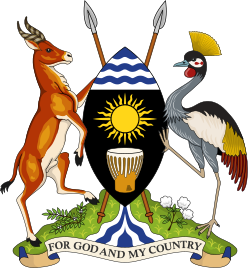 |
|---|
This article lists political parties in Uganda. Until a constitutional referendum in July 2005, only one political organization, the Movement (also called the National Resistance Movement) was allowed to operate in Uganda. The president, who also chairs the Movement, maintained that the Movement was not a political party, but a mass organization that claimed the loyalty of all Ugandans.
Contents
- Active political parties
- Parties with parliamentary representation
- Political Parties without Representation in Parliament
- Defunct political parties
- See also
- References
- External links
Until the 2005 referendum, the 1995 constitution had required the suspension of political parties while the Movement organization was in governance. Other political parties could technically exist but were prohibited from sponsoring candidates and holding meetings.
Registered political parties are now allowed to operate openly and contest elections. However, sometimes they find hardship in practicing their rights by the party in power.